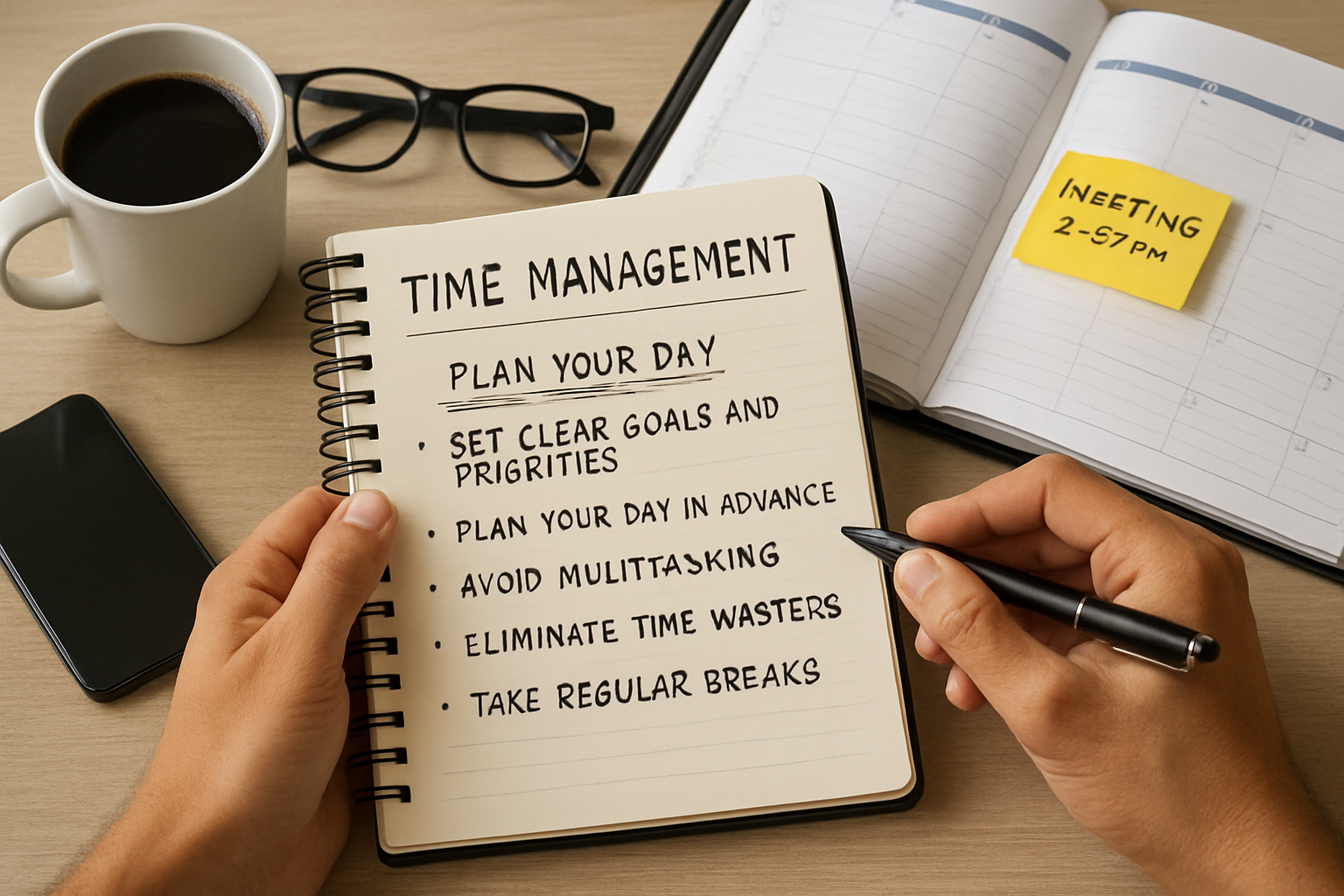Time is one of the most valuable resources you have in your professional life. Managing it effectively allows you to meet deadlines, reduce stress, increase productivity, and create room for career advancement. Without strong time management skills, even the most talented professionals can struggle to achieve their goals. In this article, we’ll explore proven strategies to help you manage your time more efficiently at work.
Set Clear Goals and Priorities
Start each day or week with clear objectives. Ask yourself:
- What are my top three priorities today?
- Which tasks align most closely with my long-term goals?
Identifying your key priorities helps you focus your energy where it matters most, rather than getting lost in low-impact activities.
Plan Your Day in Advance
Spend a few minutes each morning — or the evening before — planning your day. Use a planner, a digital calendar, or a simple to-do list to outline:
- Tasks to complete
- Meetings to attend
- Breaks to take
A structured plan gives you a roadmap and prevents last-minute chaos.
Use Time-Blocking Techniques
Time-blocking involves scheduling dedicated periods for specific tasks or types of work. For example:
- 9:00–10:30 AM: Respond to emails
- 10:30–12:00 PM: Deep focus on project work
- 2:00–3:00 PM: Team collaboration
This method helps protect your time from interruptions and ensures focused work sessions.
Avoid Multitasking
Multitasking might feel productive, but it often leads to mistakes, stress, and lower-quality results. Instead, focus on one task at a time, complete it, and then move on to the next. Single-tasking allows you to work more efficiently and produce better outcomes.
Eliminate Time Wasters
Identify common time-wasters in your workday, such as:
- Constantly checking emails or messages
- Unnecessary meetings
- Browsing social media
Set specific times for checking communications, use meeting agendas to stay on track, and limit distractions as much as possible.
Set Time Limits for Tasks
Without a time limit, tasks can expand to fill all available time — a phenomenon known as Parkinson’s Law. Set realistic deadlines for tasks, even small ones, to maintain momentum and avoid procrastination.
Learn to Say No
You can’t do everything. Politely decline requests that don’t align with your priorities or that could overload your schedule. Saying no strategically protects your time and ensures you can deliver quality results on the commitments you do accept.
Take Regular Breaks
Working nonstop leads to fatigue and diminished performance. Schedule short breaks throughout your day to recharge. A 5-minute break every hour can help maintain your energy and focus.
Review and Adjust Regularly
At the end of each day or week, review your time management:
- What went well?
- Where did you lose time?
- What adjustments can you make for next time?
Continuous reflection and small improvements lead to more efficient time management over time.
Take Charge of Your Time, Take Charge of Your Career
Managing your time efficiently isn’t just about getting more done — it’s about making meaningful progress toward your goals. By setting clear priorities, planning strategically, minimizing distractions, and reviewing your progress, you can take control of your day and your professional future. Start practicing these techniques today and unlock higher productivity, lower stress, and greater career satisfaction.

